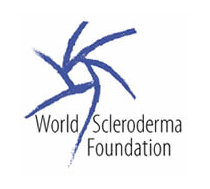‘Scleroderma News Today’ Covering 4th Systemic Sclerosis World Congress in Lisbon
Written by |

The 4th Systemic Sclerosis World Congress, organized by the World Scleroderma Foundation (WSF), will run Feb. 18–20 at the Lisbon Congress Center in Lisbon, Portugal, and Scleroderma News Today will be there to cover and report on the proceedings
The first three Systemic Sclerosis World Congresses — held in Florence, Italy, in 2010; Madrid, Spain, in 2012; and Rome, Italy in 2014, respectively — saw broad participation, with colleagues involved in research and the treatment of scleroderma coming together from all over the world, including physicians, junior trainees, health professionals, and patients. Experts with a variety of specialties succeeded in delivering balanced programs that ranged from clinical experience to interactive sessions and basic science. Patient programs, in particular, have grown progressively, says the Basel, Switzerland-based WSF, and the Rome congress was extensive and well-attended.
The objective for the 4th World Scleroderma Congress 2016 is to combine the best of the previous congresses, emphasizing clinically relevant developments in the field and aspects of care that would improve the quality of life for scleroderma patients worldwide. The combination of hands-on workshops, lectures, oral presentations, and sponsored sessions will again provide a balanced but extraordinary mix of experiences at the disposal of all attendees. A program detailing the various presentations and events is available for download at: web.aimgroupinternational.com/2016/sclerosiscongress/scientific-information/preliminary-programme/
Scleroderma News Today‘s on-site coverage of the 4th World Scleroderma Congress 2016 will be anchored by Dr. Ana de Barros, PhD, managing editor within the Bionews Services Group, and Dr. Patrícia Silva, PhD, managing editor of Scleroderma News Today. Also attending will be Bionews Services’ social media director, Isaura Santos, and social media manager, Marta Ribeiro. Their reporting will include feature articles, interviews, live streaming video coverage, and minute-by-minute social media coverage on Facebook, Twitter, and Pinterest. Social media accounts for Scleroderma News Today can be found in the upper-right corner of its home page. The Bionews team will place particular focus on the Satellite Symposiums, featuring biotechnology companies like GSK, Bayer, and Actelion.
Participation at the three previous Systemic Sclerosis World Congresses far exceeded the organizers’ expectations, and provided a forum for strengthening existing contacts and forming new networks across disciplines and national borders, a necessary dynamic for such a complex and relatively uncommon disorder as scleroderma. Many of the biological issues associated with the disease are relevant to other and more common chronic fibrotic disorders, and the World Scleroderma Congress is one forum where synergies and collaborations are born.
More information on the 4th World Scleroderma Congress 2016 is available at: web.aimgroupinternational.com/2016/sclerosiscongress/
Scleroderma and Systemic Sclerosis
Scleroderma literally means “hard skin,” but this complex and perplexing disease also manifests itself in vascular damage, organ scarring, and immune system dysfunction.
 According to the WSF, an estimated 2.5 million people worldwide suffer from scleroderma, the majority being women of childbearing age. The disease is of unknown cause and effective overall treatments are still a largely unmet need.
According to the WSF, an estimated 2.5 million people worldwide suffer from scleroderma, the majority being women of childbearing age. The disease is of unknown cause and effective overall treatments are still a largely unmet need.
While it is a relatively rare disease, and not all patients with scleroderma (also known as systemic sclerosis) suffer serious complications, its chronic nature imposes a large burden on patients, both through reduced quality of life and healthcare costs. In its more aggressive form, scleroderma has the highest mortality rate of all rheumatologic disorders.
The WSF observes that dry statistics on disease prevalence and incidence fail to portray the daily human suffering experienced by scleroderma patients and their families, or the true impact of continual pain, fatigue, and malaise on their personal and social life. Aside from the omnipresent fear of early death, mutilating changes to the hands, face and organs can conspire to reinforce a loss of self-esteem and even to deny such simple pleasures as physical affection and social interaction.
The WSF notes that scleroderma research is active on many fronts and recent progress has been considerable, with effective treatments having been developed for some disease complications, including kidney involvement and some forms of lung damage, such as Reata’s bardoxolone methyl treatment for pulmonary arterial hypertension (PAH) in scleroderma patients. Critically important research is underway in several areas, including the biology of scar tissue formation, mechanisms of blood vessel damage, and the role of the immune system in triggering tissue damage. However, WSF notes that progress is hampered by this disease’s extraordinary clinical diversity, with no two patients presenting with exactly the same symptoms and progression profile.
A breakthrough in understanding scleroderma could strongly and positively impact many other diseases involving abnormal scarring and blood vessel injury, conditions as diverse as interstitial lung disease and intestinal hypomotility disorders, and those with blood vessel injury at their roots. The WSF says that while scleroderma is important in its own right, it is appropriately regarded as a “linchpin disorder,” a better understanding of which would prove fundamentally applicable to many other disease categories.
The WSF is committed to improving the quality of life for scleroderma patients and their families.
Sources:
World Scleroderma Foundation
4th Systemic Sclerosis World Congress






